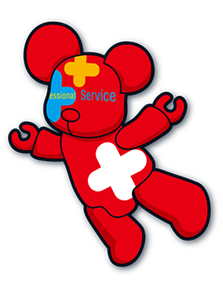Authors (including presenting author) :
Ng HYN(1), Lauw WL(2)(3), Ko PS(1), Lee KY(2), Ng YB(1)
Affiliation :
(1)Palliative Care Unit, Department of Medicine and Geriatrics, (2)Community Nursing Service, (3)Community Geriatric Assessment Team, United Christian Hospital
Introduction :
Elderly patients with advanced diseases in Residential Care Homes for the Elderly (RCHEs) are subjected to suffer physically and mentally with unnecessary and unwanted treatments at the end of life. An End-of-Life care (EOLC) in RCHEs Programme has been launched from October 2017 in the United Christian Hospital to preserve dignity for the frail elderlies. Interventions include Advance Care Planning (ACP), on-site nursing and medical support and direct admission. Family’s perception of the service is a significant component for the programme evaluation.
Objectives :
To evaluate the satisfaction of family with the EOLC in RCHEs Programme for quality improvement.
Methodology :
Family members of deceased patients of the EOLC in RCHEs Programme were invited to participate in a satisfaction survey. They were contacted by phone at least two months after patient passed away. A questionnaire of six statements with Likert scale from strongly disagree to strongly agree, and an open-ended question was used. Participants’ responses were collected and descriptive statistics were used in the data analysis.
Result & Outcome :
During the period from October 2017 to September 2018, there were 47 deaths. Average length of stay in the Programme was 96.9 days. Family members were approached from July 11 to December 18, 2018. 39(83%) were successfully contacted.31(66%) completed the questionnaire,8(17%) declined to participate while 8(17%) could not be reached by phone after three weekly attempts. All questions were answered by >87% of participants.58% of participants were children of the deceased patients.99% scored between agree to strongly agree on all the six statements with a mean overall satisfaction score of 3.51(on a scale of 1 to 4). The satisfaction score was highest for psychological preparation of family for patient’s deterioration and terminal stage(3.59) and the benefit of ACP to meet patient’s needs and expectation(3.59), followed by clear explanation by Community Geriatric Assessment Team(3.55). Qualitative response was also generally positive, family commented that the Programme is a blessing to the elders and beneficial to family that it should be expanded to more RCHEs. In conclusion, the overall family experience was positive with the EOLC in RCHEs Programme. It is worthwhile to expand the service to more RCHEs in Hong Kong.








